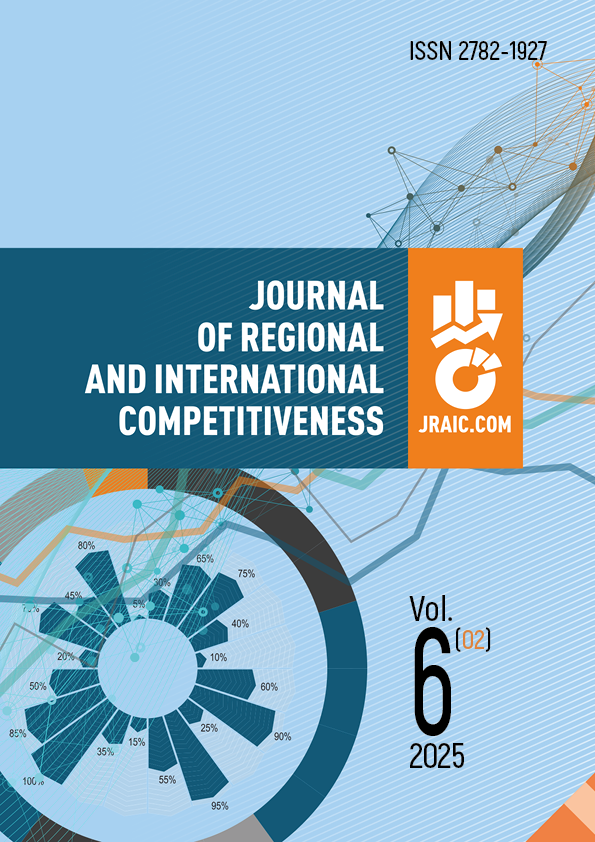Yaroslavl, Yaroslavl, Russian Federation
Yaroslavl, Rostov-on-Don, Russian Federation
The article examines import substitution in the global economy in terms of the historical experience of various countries and theoretical approaches to its implementation. The research analyses the historical stages of the formation of import substitution as an economic phenomenon. It considers the industrialisation of the 19th – early 20th centuries in developed countries and the policy of post-war reconstruction in Latin America and Asia. Indeed, the paper draws a special attention to comparing the Latin American model, focused on the domestic market, with the East Asian approach, combining protectionism with an export-oriented strategy. Moreover, the research examines the positive and negative aspects of import substitution policy in various countries, including the impact of government support, the transparency of the economy, and the technological development. The relevance of the topic is due to the increasing policy of sanctions pressure on Russia, causing the implementation of the effective import substitution measures, especially in high-tech industries. For instance, Russia's dependence on imports in 2022 in the manufacture of medicines reaches 45%, in the manufacture of textiles – 28%, and in heavy machinery – 65%. Therefore, it as a threat to national economic security. The purpose of this study is to examine the historical experience of the global economy, analyse the theoretical approaches to import substitution, and identify the most effective strategies for its implementation in modern Russia. Logically, we study the historical experience of the different countries to understand the prerequisites and consequences of import substitution policy, and the theoretical foundations of the concept to form a comprehensive understanding of the phenomenon. This paper dwells on the use of historical, comparative, and logical methods, and analyses the works of leading economists. Analysing various approaches to concept of import substitution, we conclude on the importance of a balanced approach. Those combines a multi-level economic strategy for the development of competitive national production with the ability to completely or partially replace imported goods and the structure of imports.
import substitution; global economy; ISI strategy; import substitution policy; history of import substitution
1. Animitsa Ye. G., Animitsa P. Ye., & Glumov A. A. (2015). Import Substitution in Regional Industrial Production: Theoretical and Practical Aspects. Ekonomika regiona, (3), 160-172 (in Russian). DOI: https://doi.org/10.17059/2015-3-14
2. Volokhonskaya, E. V. (2009). Implementation of the product import substitution strategy at Russian industrial enterprises. Ekonomicheskie nauki, (12), 281-286 (in Russian).
3. Gataulina, E. V., & Pelymskaya, I. C. (2024). Import substitution in the heavy engineering industry: current status and trends. Intellektual’nye biznes-processy v promyshlennosti: sbornik nauchnyh trudov. Yekaterinburg: UrFU (in Russian).
4. Gubina, M. A. (2020). Import substitution and/or export orientation: Indian pharmaceutical industry experience. Ekonomika i biznes, 6(123), 50-54 (in Russian).
5. Doskalieva, B. B., & Torzhanova, D. A. (2020). Theoretical aspects of import substitution: variety of approaches and contradictions. Vestnik Rossijskogo universiteta kooperacii, 4(42), 28 (in Russian).
6. Zhabin, A. P., & Volkodavova, E. V. (2024). The relationship between import substitution and scientific and technological development of Russia: problems and solutions. Fundamentalniye issledovaniya, (5), 22-27. Retrieved from https://fundamental-research.ru/ru/article/view?id=43608
7. Zemlyansky, D. Y., & Chuzhenkova, V. A. (2025). Industrial dependence on imports in Russian regions after 2022. NEA zhurnal, 1(66), 282-290 (in Russian).
8. Kuzminov, Ya. I., Simachev, Yu. V., Kuzyk, M. G., Fedyunina, A. A., Zhulin, A. B., Glukhova, M. N., & Klepach, A. N. (2023). Import substitution in the Russian economy: yesterday and tomorrow. Analiticheskij doklad Vysshej shkoly ekonomiki. Nacional’nyj issledovatel’skij universitet “Vysshaya shkola ekonomiki\” pri uchastii Rossijskogo soyuza promyshlennikov i predprinimatelej, Instituta issledovanij i ekspertizy VEBA. Moscow: Izd-vo Vysshej shkoly ekonomiki (in Russian).
9. Import Substitution: Brazil’s Experience (2015). PWC. Retrieved from https://www.pwc.ru/en/oil-and-gas/assets/gazprommagazine-3-2015_extract-pages.pdf
10. Kaboshkina, I. A. (2006). Analysis of import substitution in Russia after the 1998 crisis. Moscow: IEPP (in Russian).
11. Karimullina, A. V. Industrial policy of the Republic of Singapore: stages, tools, results. RISI. Retrieved from https://riss.ru/images/pdf/journal/2012-/3/13_.pdf.
12. Klimova, D. N., Sayapin, A. V. (2018). Import-substitution strategy: the main models and possibilities of realization in Russia. Social’no-ekonomicheskie yavleniya i processy, 2(13), 78-84 (in Russian).
13. Kotok, N. Y. (2021). Foreign experience in developing import substitution strategies: conclusions for Russia. Teoriya i praktika obshchestvennogo razvitiya, (12), 91-97 (in Russian). DOI: https://doi.org/10.24158/tipor.2021.12.11; EDN: https://elibrary.ru/MPFVVF
14. Kravchenko, N. A. (2015). The history of import substitution. ECO, 9(495), 73-91 (in Russian). EDN: https://elibrary.ru/UKJHRL
15. Krugman, P. R., Obstfeld, M., & Melitz, M. J. (2018). International Economics: Theory and Politics. Moscow: Yurait (in Russian).
16. Lifshitz, P. H. (1992). Economics of micro-economic relations. Moscow: Progress (in Russian).
17. Makarov, A. N. (2011). Import substitution industrialization as a tool for the region’s economy: innovation aspect (for example, the Nizhny Novgorod region). Innovatsii, (5), 90-93 (in Russian). EDN: https://elibrary.ru/PDUBCX
18. Matyukhin, A. A., & Rustamova, I. T. (2023). The history of import substitution policy in Russia and abroad. Civilizaciya znanij: rossijskie realii: sbornik trudov XXIV mezhdunarodnoj nauchnoj konferencii. (pp. 843-850). Moscow (in Russian).
19. Myrdal, G. (1972). Modern problems of the “third world”. Moscow: Progress Publ., (in Russian).
20. Nazarchuk, E. N. (2007). Theoretical and methodological foundations of effective import substitution at Russian industrial enterprises. PhD Dissertaition. Samara: Samarskij gosudarstvennyj ekonomicheskij universitet (in Russian). EDN: https://elibrary.ru/NOZLVF
21. Petukhov, V. A. (2022). The experience of import substitution in Great Britain and Germany in the 19th century. Upravlencheskiy uchet, 11(1), 113-124 (in Russian). DOI: https://doi.org/10.25806/uu11-12022113-124; EDN: https://elibrary.ru/KLOLPO
22. Petukhov, V. A. (2023).The experience of import substitution in Latin America in the 20th century. Upravlencheskiy uchet, (1), 358-369 (in Russian). DOI: https://doi.org/10.25806/uu12023358-369; EDN: https://elibrary.ru/SCKIHI
23. Prebish, R. (2006). Selected works. 1919-1986. Besa Garcia H. Economic Commission for Latin America and the Caribbean (ECLAC). Santiago de Chile: ECLAC.
24. Semenikhin, V. A., Safronov, V. V., & Terekhov, V. P. (2014). Import substitution as an effective tool for optimal development of the regional economy. Vestnik Kurskoj gosudarstvennoj sel’skohozyajstvennoj akademii, (7), 2-7 (in Russian).
25. Fedoseeva, G. A. (2020). The world experience of development of import substitution of industrial production. Ekonomika i biznes, 6(123), 40-44 (in Russian).



















